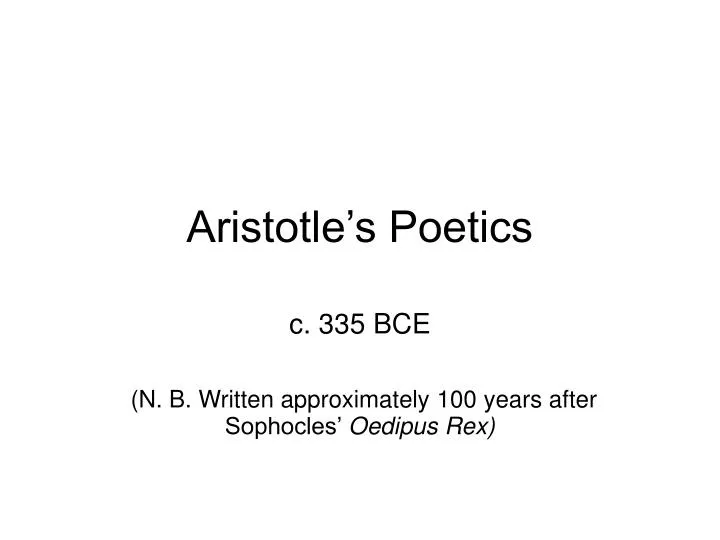
But at the same time they differ from one another in three ways, either by a difference of kind in their means, or by differences in the objects, or in the manner of their imitations. Let us follow the natural order and begin with the primary facts.Įpic poetry and Tragedy, as also Comedy, Dithyrambic poetry, and most flute-playing and lyre-playing, are all, viewed as a whole, modes of imitation. Our subject being Poetry, I propose to speak not only of the art in general but also of its species and their respective capacities of the structure of plot required for a good poem of the number and nature of the constituent parts of a poem and likewise of any other matters in the same line of inquiry. No part of this publication may be reproduced, distributed, or transmitted in any form or by any means, including photocopying, recording, or other electronic or mechanical methods, without the prior written permission of the publisher, except in the case of brief quotations embodied in critical reviews and certain other noncommercial uses permitted by copyright law.Ĭover Image: a detail of Greek Theatre, by Peter Jackson (1922-2003) / Private Collection / © Look and Learn / Bridgeman Images. Read moreĬover.jpg POETICS By ARISTOTLE Translated by INGRAM BYWATER

This edition is translated by Ingram Bywater and includes a biographical afterword. An essential read for any student of classical literature, Aristotle’s “Poetics” provides great insight into the study of drama from the classical period. Lost for a time to the Western world, “Poetics” was rediscovered in the late medieval and early renaissance period from Arabic sources.

Aristotle outlines the elements of good drama drawing upon specific examples from the literature of ancient Greece. It is a detailed analysis of drama and poetry with its greatest emphasis on tragedy. Contained in this volume is Aristotle’s “Poetics” which is regarded as the world’s first comprehensive treatise on literature. His writings were not constrained to simply one field of inquiry but covered such various subjects as physics, biology, metaphysics, logic, ethics, aesthetics, rhetoric, linguistics, politics and government.

Aristotle was probably the most famous member of Plato’s Academy in Athens, whose writings would ultimately form the first comprehensive system of Western philosophy. and is thought of as one of the most important figures from classical antiquity.

Greek philosopher and scientist, Aristotle, lived in the 4th century B.C.


 0 kommentar(er)
0 kommentar(er)
